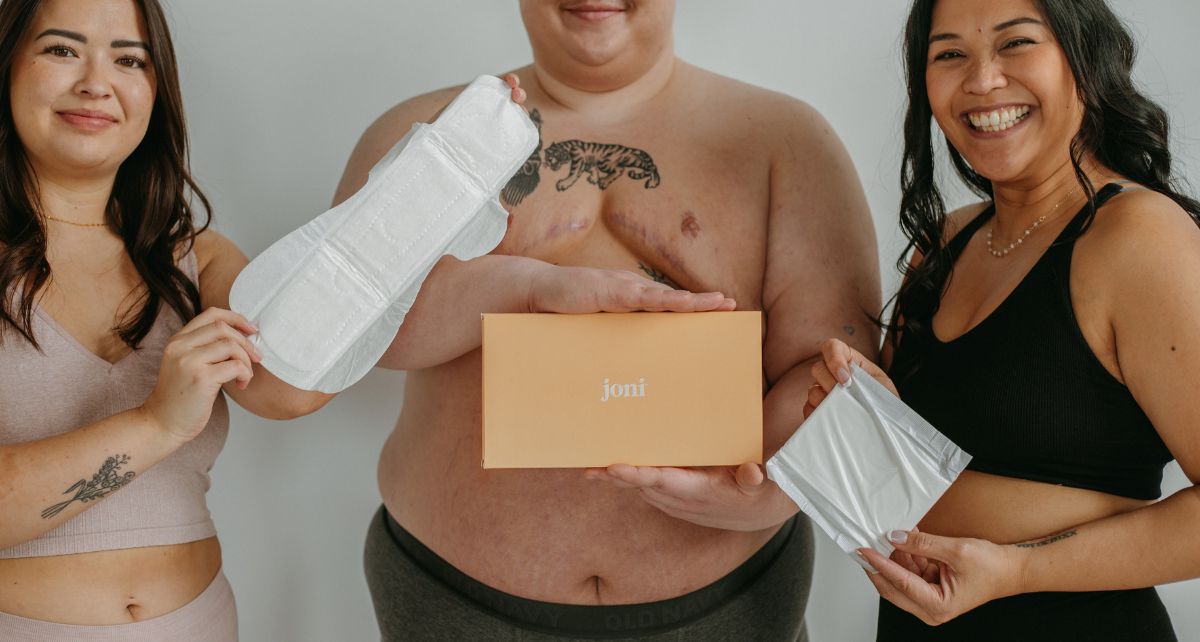The History of Plastic Periods & The Future of Periods Without Plastic
It takes over 300 years for one conventional plastic pad to break down. The first plastic pads ever created are still breaking down in landfills. Our future must be one for equitable plastic-free periods.
Let's look at how the industry got to plastic pads in the first place and how period equity and bodily agency fit into the sustainability movement:
In the 1960s pads began to incorporate leak-proof polypropylene or polyethylene as their base. This came from the fact that chemists were developing sophisticated plastics so quickly that manufacturers found new ways to use them—menstrual products being one of them.
Marketing single-use plastic wrappers that people could hide away and transport helped to drive shame and stigma around periods further. Even just eight years ago, a big brand launched a "discreet" packaging campaign with "softer, quieter [plastic] wrapper to help keep it secret". Today, a conventional plastic pad is equivalent to 3-4 plastic bags and takes 300+ years to break down.
Barriers to Reusable Products
While reusable products are a great sustainable option for many, millions of Canadians are unable to use reusable products for a variety of reasons, including:
-
sexual trauma
-
barriers to clean water
-
barriers to safe washrooms
-
cost
-
health conditions
So what's the answer?
Bodily Agency
Since our bodies and situations are different, there is no perfect one-size-fits-all solution to period care. What works for you may not work for someone else, and that's ok.
The industry has conditioned us to believe that one situation is better than another.
It's just not that simple.
Innovation in Period Care
Innovation in period care needs to factor in what is good for our bodies, our community, and the planet vs perpetuating stigma and shame.
Every body is different—supporting bodily agency (choosing what works for you) and period equity (having access to what you need) is the future of period care.
Redefine the Industry
In the drive for innovation and more sustainable options, bringing bodily agency and period equity into the sustainability movement is an important step in redefining the period care industry for everyone who menstruates.
At joni, we offer equitable plastic-free pads and tampons with our organic and biodegradable pads as we develop more products for the future to support all bodies.
